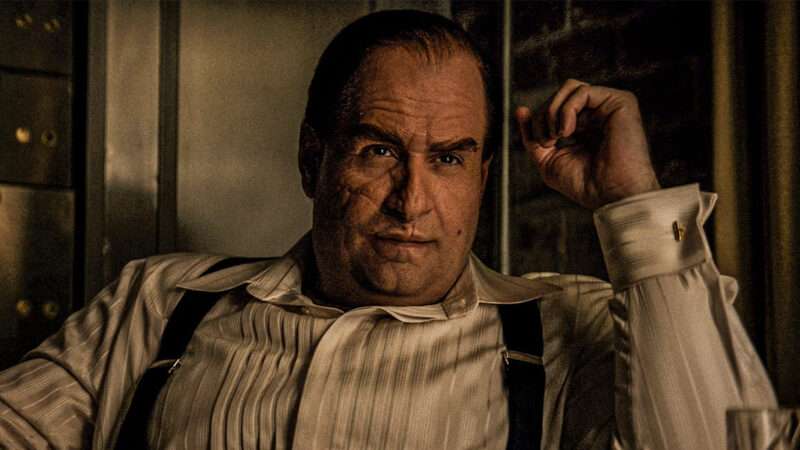
There are good people in Gotham, but we don't see them in the HBO miniseries The Penguin. From start to finish, this is a show about rival gangsters with no loyalty or respect for anyone. They lie, screw over their own henchmen, impulsively commit murder (sometimes of their own family members), and—worst of all—put an elderly mother in peril.
The show picks up a week after the 2022 film The Batman left off: The reigning crime lord of Gotham, Carmine Falcone, is dead and the simple succession plan is quickly thrown out of whack. A fight for Gotham's underworld ensues, with the titular Penguin (played by Colin Farrell, though you'd never guess it beneath his accent and grotesque makeup) playing both sides of the Falcone-Maroni gang war. Sofia Falcone Gigante (Cristin Milioti) and Sal Maroni (Clancy Brown) are the main combatants. Other characters who seem like they may be a factor are instead dispatched more nonchalantly than a Game of Thrones star.
There's no plan for mass civilian murder that Batman must swoop in to stop—the caped crusader is hardly ever referenced. There's just a plan to get people hooked on a new illegal party drug, called Bliss, and to use the cash influx to control the streets of Gotham. The battle to control Bliss leads to gruesome murders of creative means (carbon monoxide poisoning en masse, immolation, surprise explosion). Maybe if Bliss weren't illegal, all that violence could be replaced by peaceful marketplace competition?
Viewers don't see much of Gotham's historically corrupt city government in The Penguin (except when someone needs to be wrongfully institutionalized without trial by a judge who's been paid off). But when something in high demand is illegal, the black market will always accommodate—with violence and death, if necessary. Elderly mothers everywhere take heed.
The post Review: Drug Prohibition Leads to Violence in <i>The Penguin</i> appeared first on Reason.com.







